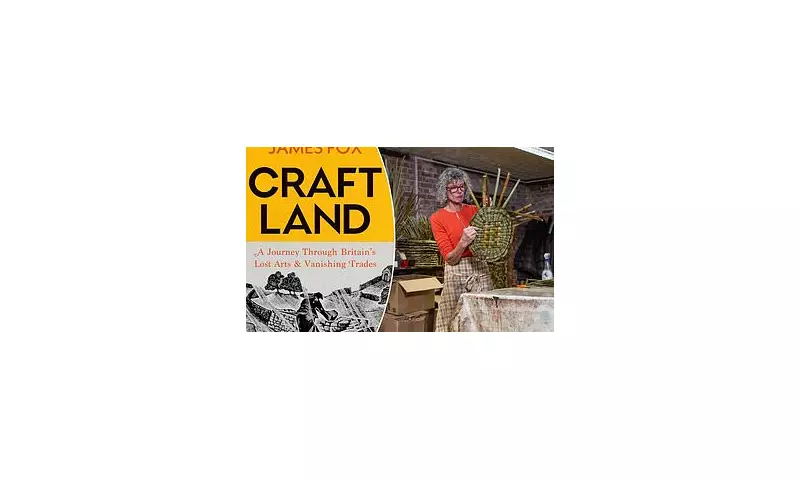
In an era of mass production and digital saturation, art historian James Fox undertakes a profound mission: to chronicle the heartbeat of Britain's traditional craftsmanship before it falls silent. His compelling new book, Craftland, is not merely a publication but a rescue operation—a vivid portrait of the dedicated artisans keeping ancient trades alive against formidable odds.
Fox journeys from the remote Scottish Highlands to the bustling workshops of London, immersing himself in worlds where skill is measured in decades, not seconds. He introduces us to a cast of remarkable characters: weavers creating intricate tartans on looms that have clacked for generations, woodworkers fashioning timeless furniture with hand tools, and potters whose hands shape clay into objects of enduring beauty.
The Guardians of Forgotten Skills
What makes Craftland so powerful is its intimate access. Fox doesn't just observe; he participates. He learns the physical language of these trades, feeling the strain in his muscles and the focus required for precision. This firsthand experience allows him to translate these complex processes into prose that is both technically insightful and deeply human.
The book reveals that these crafts are more than just jobs—they are custodians of cultural memory. Each crafted object contains within it centuries of accumulated knowledge, regional identity, and a unique relationship with local materials. The threat to these practices isn't just economic; it's the potential loss of irreplaceable cultural DNA.
A Silent Crisis in British Culture
Fox sounds a sobering alarm about the silent disappearance of these skills. As master craftspeople age without apprentices to follow them, entire traditions risk vanishing within a generation. Craftland exposes the perfect storm of challenges: the dominance of cheap imports, the decline of vocational training, and a society increasingly disconnected from how objects are made.
Yet this is far from a eulogy. The book shines with moments of hope and resilience. Fox finds young innovators adapting ancient techniques for contemporary markets, and communities rallying to preserve their craft heritage. These stories suggest a potential renaissance, fueled by a growing public appetite for authenticity and sustainability.
More Than a Book—A Movement
Craftland ultimately transcends its form to become something greater: a call to action. Fox makes a compelling case for why these crafts matter not as nostalgic relics, but as vital components of a diverse economy and a rich culture. He argues for their value in fostering well-being, environmental sustainability, and community cohesion.
Beautifully written and meticulously researched, Craftland does for British craftsmanship what slow food did for cuisine—it asks us to appreciate the maker, the material, and the method. It's an essential read for anyone concerned with preserving the soul of British culture in the twenty-first century.





